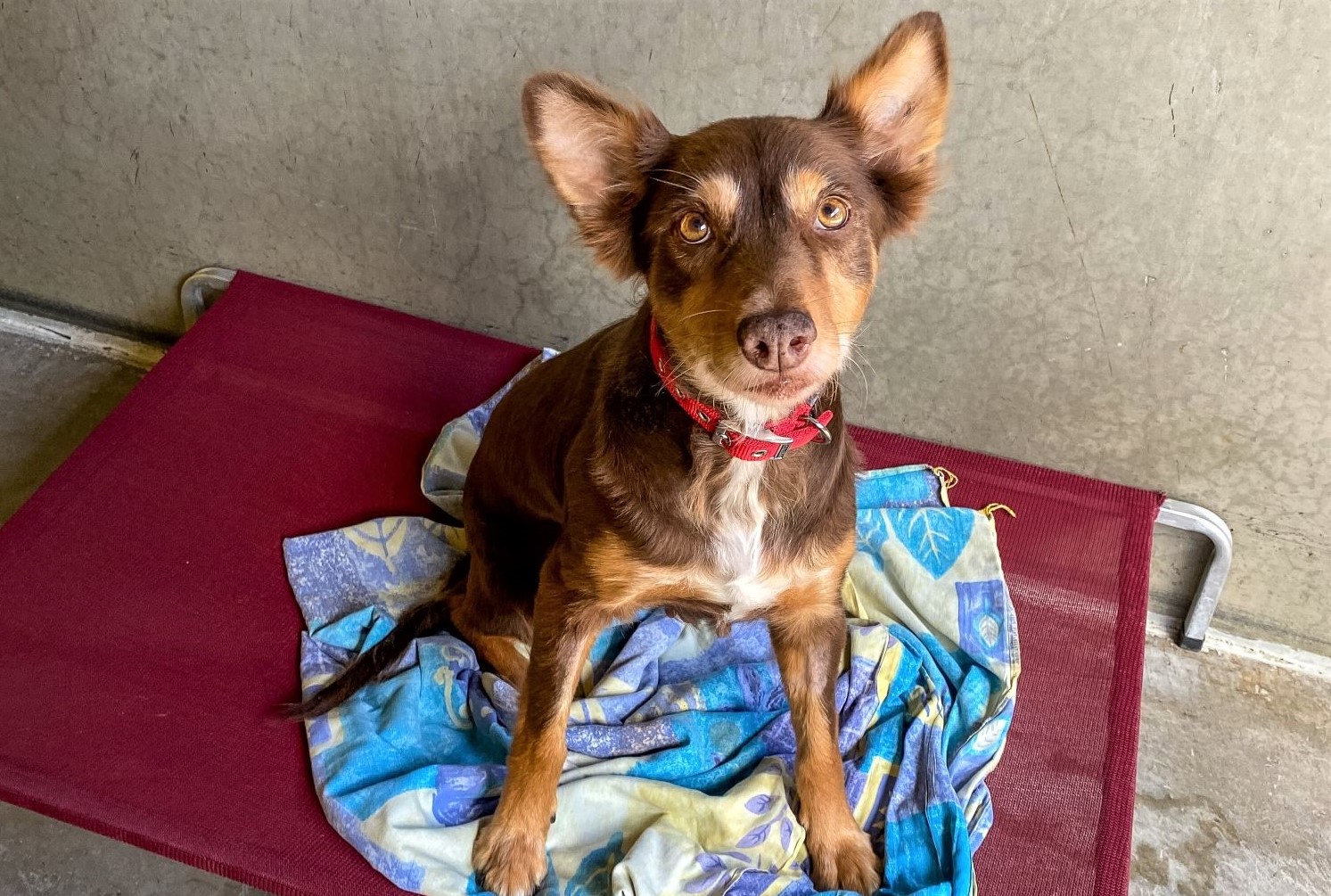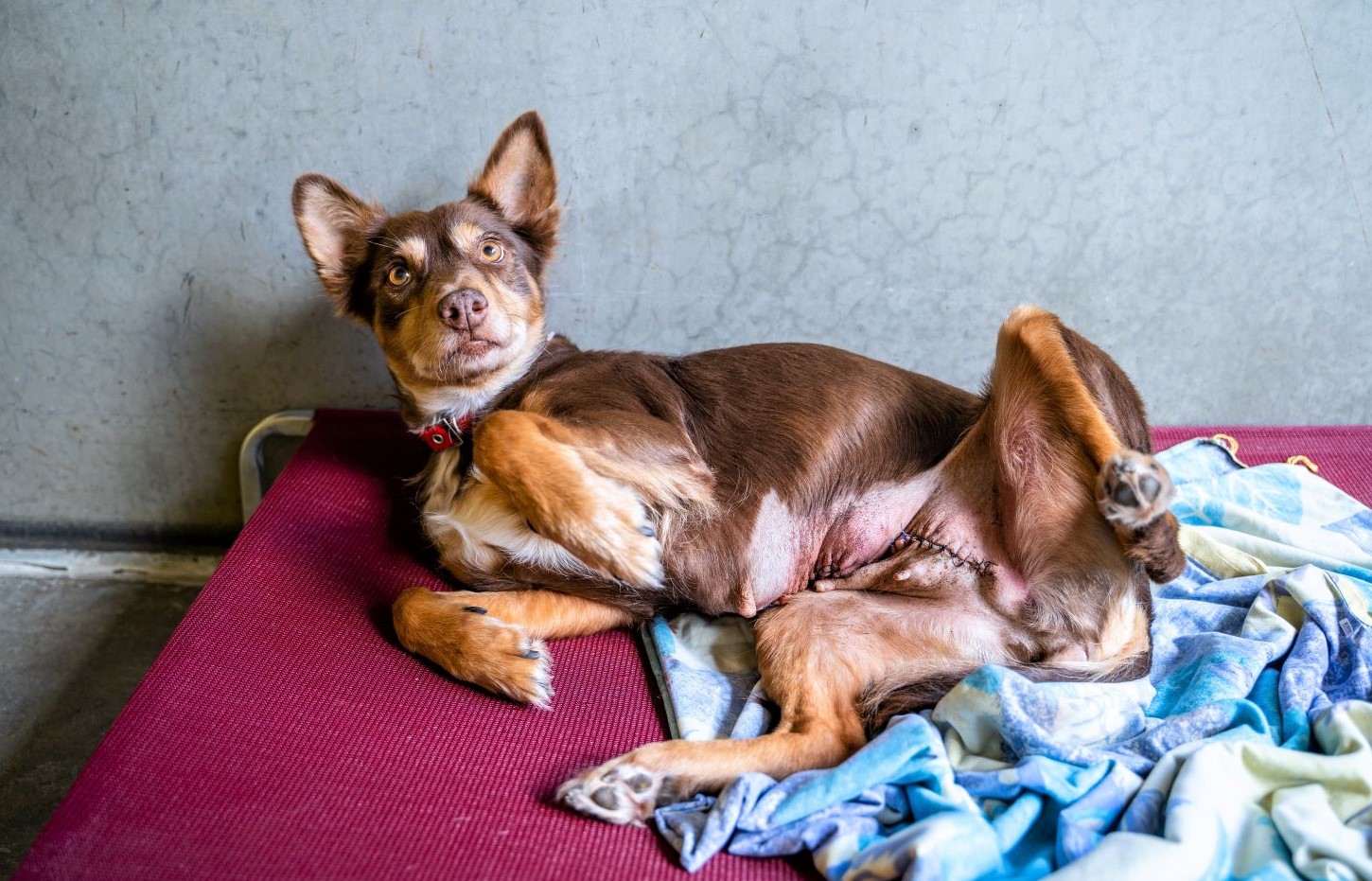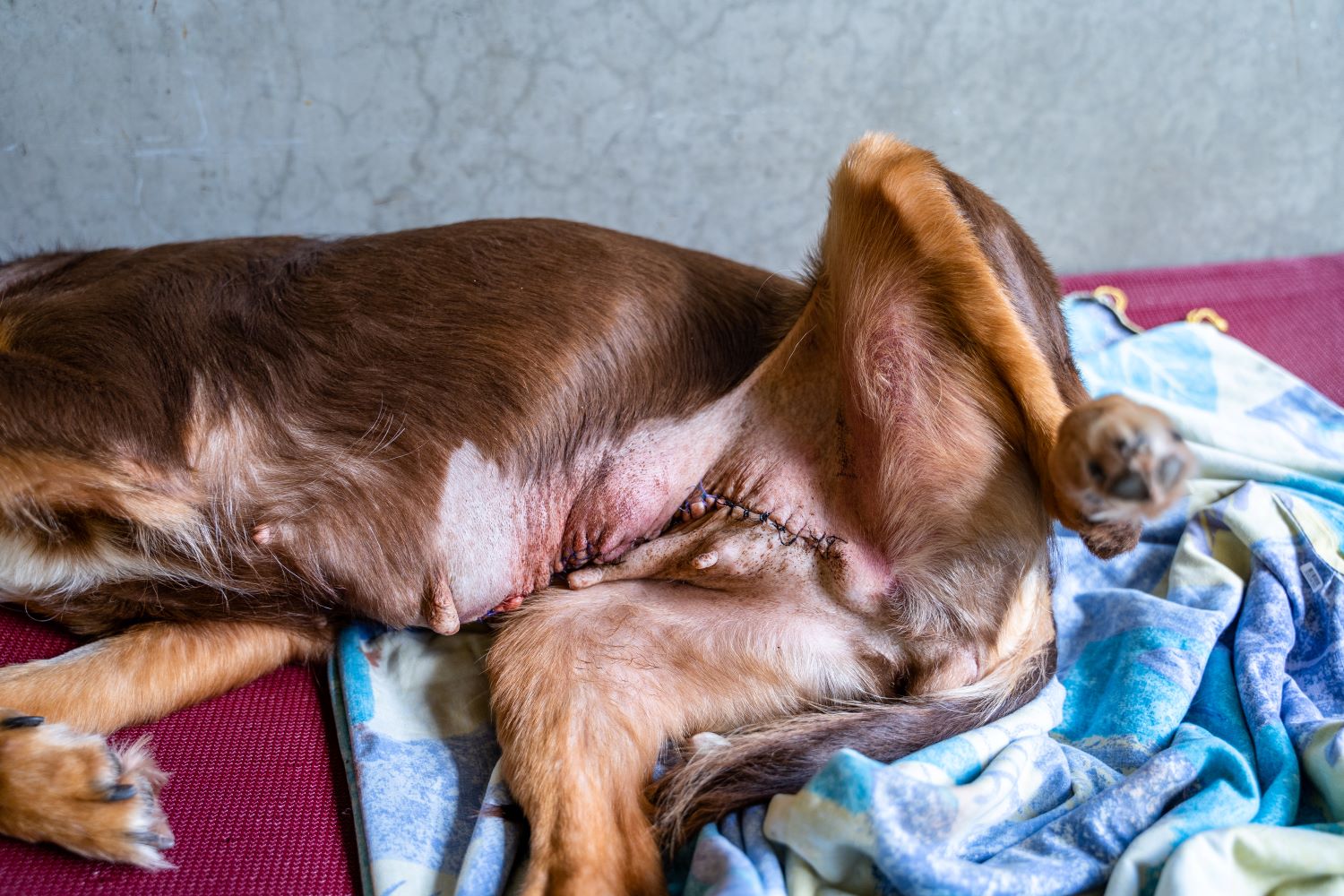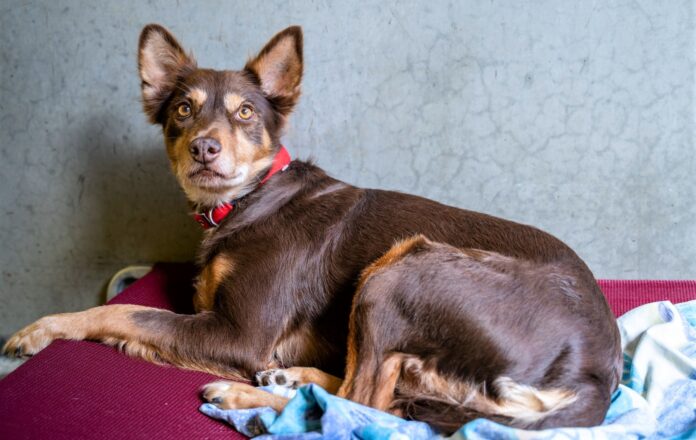Ruby the dog’s brave breast cancer battle is a reminder that animals can contract cancer too.
When vets found irregular lumps in Ruby’s mammary glands, they conducted more tests and she was diagnosed with breast cancer.
Her irregular lumps were detected during an intake examination by Noosa RSPCA vets when she came into their care after being transferred from the Noosa Council pound.
Immediately after, they decided the seven-year-old kelpie needed urgent medical treatment to stop the cancer spreading and to give her the best chance at life.
RSPCA chief vet Dr Anne Chester said the irregular lumps in Ruby’s mammary glands were discovered on palpation (an examination by pressing on the surface of the body to feel the organs or tissues underneath).

“She also had worn teeth but was otherwise reasonably healthy,” she said.
Dr Chester said a histopathology (a diagnosis and study of diseases of the tissues) was then performed.
“She had two types of cancer: one was benign and the other was a grade-two carcinoma which has the potential to spread,” she said.
“She had additional tests performed including checking of regional lymph nodes for sign of spread, bloods taken and chest x-rays.
“There was no sign of infiltration both physically and histopathological (the study of diseased cells and tissues using a microscope).”
Ruby then underwent surgery to remove the tumour and her mammary glands.

“If the surgery wasn’t performed and the cancer was left, it would have likely eventually spread,” she said.
Ruby’s surgery was a staged procedure and the surgery time was considered lengthy, due to the degree of the operation.
“There was considerable nursing time after each surgery as she was hospitalised and supported with bandaging and pain relief as well as things like IV fluids,” Dr Chester said.
“She really coped quite well, but was a little reluctant to move at first and there was some bleeding after the first surgery, though she was well enough and we were happy to continue.
“We certainly do this surgery frequently if we feel the animal can cope and is healthy in other ways.
“Sometimes it will be just be an individual lump removal … not all require a full strip.”
She said the RSPCA veterinary team were extremely relieved when follow-up tests showed no evidence that Ruby’s cancer had spread.

Affectionate Ruby has now made full recovery from surgery and the procedure did not hinder her adoption chances.
“She was adopted a week after being put up,” she said
She revealed that mammary gland tumours are reasonably common in older female dogs and offered some tips for owners who suspect their animal has cancer.
“Owners should be looking for lumps and bumps in areas that there shouldn’t be any,” she said.
“They should note how fast they are growing and if they are ulcerated or painful. They should be checking everywhere, including mammary glands, mouth, under the tail and so on.”
Help us deliver more news by registering for our FREE daily news feed. All it requires is your name and email at the bottom of this article.





